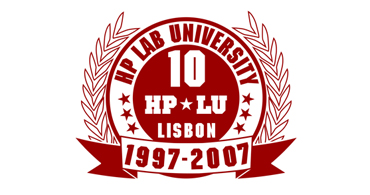HP Lab University 2007: Future promises 'insanely simple' technology
HP outlines how it believes technology will shape our environment in the future and what it plans to do to help users benefit from technological advances.


Sign up today and you will receive a free copy of our Future Focus 2025 report - the leading guidance on AI, cybersecurity and other IT challenges as per 700+ senior executives
You are now subscribed
Your newsletter sign-up was successful
Technology has fundamentally changed the way people live and work in the past two decades, and users can expect more of the same in the next 20 years as the boundaries between the virtual and physical worlds continue to blur.
Despite a future filled with seamless always-on connectivity and more personalisation of devices and services, the positives won't be completely pain free, according to Phil McKinney, vice president and chief technology officer of HP'spersonal systems group, who outlined his view of future computing with delegates at the HP Lab University event in Lisbon this week.
"If you go back 20 years and think what life was life and what we experienced we had the Motorola brick phone. That was really the coolest, neatest mobile device you could have at the time and it was around $4,000. So from 1987 to today look how far we have traveled," he said.
"Our objective [in HP Lab] is not to define an exact end point but to define possible futures."
Social dynamics will change between now and 2025, with virtual collaboration ramping up between now and 2015 and virtual worlds like Second Life becoming increasingly central to business and consumer activities in 2020 before gaining legal status in 2025, according to McKinney.
The world of personal entertainment and the continued emergence of smart devices will also feature heavily in the years to come as will the move towards intelligent networks and seamless connectivity.
"This opens up a Pandora's Box though, as you'll have more smart devices and how do you get those devices to work together? I'd love everyone to have my house as it's all HP but not everyone buys technology from one supplier so we need to look at how we make it easier for consumers to buy devices that work cohesively together," said McKinney.
Sign up today and you will receive a free copy of our Future Focus 2025 report - the leading guidance on AI, cybersecurity and other IT challenges as per 700+ senior executives
"We're doing a lot of work with standards organisations... Enterprise customers or consumers don't care what wireless technology a device is using, they just want the experience of being always connected. We believe that in the next two to three years consumers will have that always-connected experience."
What lies ahead will throw up a number of issues such as privacy and the danger of information overload, according to McKinney who believes that the answer is to create devices that are "insanely simple to use."
"Technology marching forward does create some unique challenges. How do take technology and move it to the background? Today in most cases technology is at the front and forces the user to go through the technology to get the benefits. We've set ourselves the challenge to reverse that," McKinney said.
"Why was Palm successful or Apple's Newton before that not successful? The Newton was trying to do everything whereas Palm only did a few things and did them very well."
Maggie has been a journalist since 1999, starting her career as an editorial assistant on then-weekly magazine Computing, before working her way up to senior reporter level. In 2006, just weeks before ITPro was launched, Maggie joined Dennis Publishing as a reporter. Having worked her way up to editor of ITPro, she was appointed group editor of CloudPro and ITPro in April 2012. She became the editorial director and took responsibility for ChannelPro, in 2016.
Her areas of particular interest, aside from cloud, include management and C-level issues, the business value of technology, green and environmental issues and careers to name but a few.


